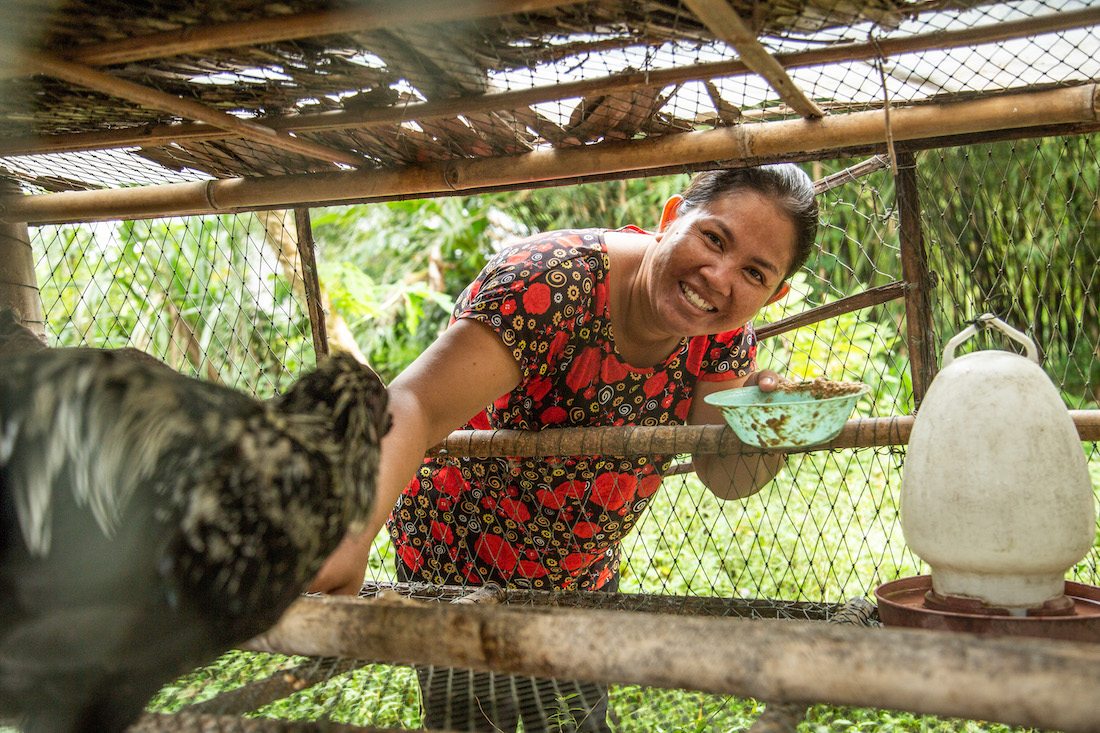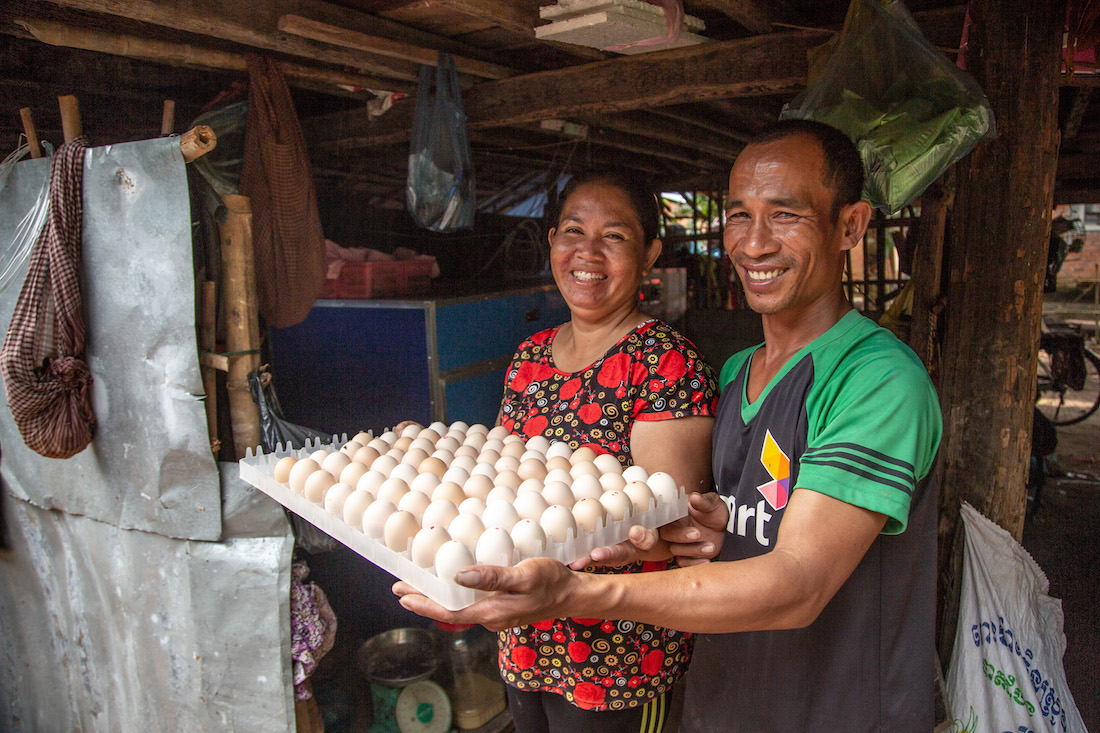More than a million Cambodians have migrated to find work abroad, most often in Thailand. Around 53 percent are undocumented migrant workers. As a result, they face many challenges, including staying in low-quality shelters, enduring poor working conditions and receiving lower pay than other workers. Many live in fear of being arrested and deported back to Cambodia and losing all of their savings.
Chea Kimshour and her husband, Meout Ya, live with their three children in Rolea B'ier district, Kampong Chhnang province. Before joining a Heifer Cambodia project, Chea Kimshour’s husband migrated to work in Thailand because of the lack of job opportunities in Cambodia. He needed to earn some money to support the family and pay off their debts, and that left Chea Kimshour alone to care for their children and manage the farm.

In 2004, Meout Ya was able to migrate to Thailand through a broker as an undocumented migrant worker. Chea Kimshour borrowed $500 from a middleman with an interest rate of 20 percent per month. In Thailand, Meout Ya worked as a construction worker for a small company and sent home only about $50 per month to support his family. He rarely went outside his room and workplace because he was afraid of the police.
“I never slept well,” Chea Kimshour said. “I always thought about my husband. When my children got sick, it was so hard for me to take care of them alone.”
In January 2018, a Heifer project was introduced in her community, and Chea Kimshour joined the project’s self-help group as well as an associated agricultural cooperative. Through the project, she received training that included business planning, chicken and garden management, leadership, microfinance and the 12 Cornerstones. Chea Kimshour gained a strong sense of confidence, and she saw the benefits of owning a business. She convinced her husband to return home to run a chicken operation together.

Upon his return, Meout Ya attended the training on chicken management with his wife. Together, they borrowed $500 from the cooperative to start their poultry business.
At first, they were worried about the investment due to a previous bad experience where they tried to raise 15 chickens; most of the animals died, and they lost money. After joining the project, the couple has successfully raised more than 180 hens with two incubators, and they produce at least 500 chicks per month. Now, they can earn more than $300 per month selling chicks.
Chea Kimshour said they no longer have challenges selling their chickens since the cooperative connected them to local markets. With their success, Chea Kimshour and Meout Ya are sharing their knowledge and experiences with other self-help group members who are interested in raising chickens.
“I don’t think I could raise hundreds of chickens without disaster … before receiving the training,” Meout Ya said. “Moreover, I am no longer living with fear as I was in Thailand. [Now] I see my wife and children’s smile every day.”
“There’s no greater happiness than having family members living together,” Chea Kimshour said. “I will not allow my husband to migrate to Thailand anymore. Our chicken business is going very well, and we plan to expand our chicken pen and increase to 500 hens next year. I am so grateful that the project is implemented in my community and gives my family the opportunity to change our living conditions and to be together.”
Story written by Veasna Prom, Heifer Cambodia communication and networking manager